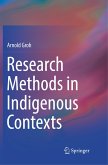This book applies a range of ideas about scientific discovery found in contemporary philosophy of science to psychology and related behavioral sciences. In doing so, it aims to advance our understanding of a host of important methodological ideas as they apply to those sciences. A philosophy of local scientific realism is adopted in favor of traditional accounts that are thought to apply to all sciences. As part of this philosophy, the implications of a commitment to philosophical naturalism are spelt out, and a correspondence theory of truth is defended by showing how it helps explain various features of scientific practice. The central chapter of the book presents a broad theory of scientific method that comprises the detection of empirical phenomena and their subsequent understanding by constructing explanatory theories through the use of abductive methods. This theory of scientific method is then used as a framework to reconstruct the well-known qualitative methodof grounded theory, and to present a systematic perspective on clinical reasoning and case formulation. Relatedly, an abductive or explanationist understanding of methods is employed to evaluate the knowledge credentials of evolutionary psychology. In addition, the conceptual and methodological foundations of a variety of quantitative methods are examined. Exploratory factor analysis and tests of statistical significance are given special attention.
Bitte wählen Sie Ihr Anliegen aus.
Rechnungen
Retourenschein anfordern
Bestellstatus
Storno








